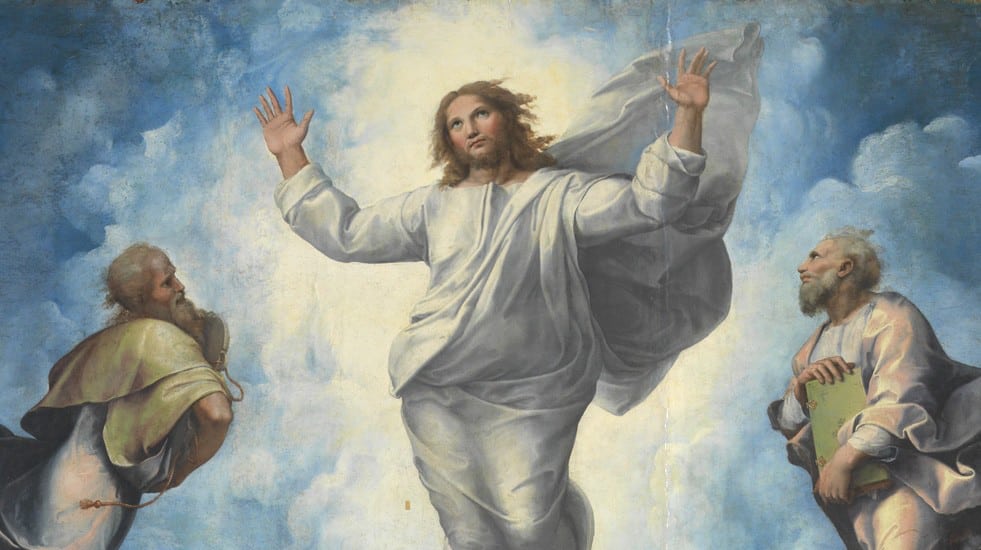“You disregard God’s commandment but cling to human tradition.” (Mark 7:8)
Why would Jesus Christ disapprove of human tradition? The reason for his disparaging remark must be found in disregarding God’s laws and substituting them with human traditions and man-made regulations. Actually, Jesus’ remark exposes the recurrent conflict between… TWO traditions: God’s and the one devised by those who want to hold sway over him, impress fellow mortals with their performance and pass for pious and obedient people while refusing to honor God with their whole heart.
The mention of human tradition offers the opportunity to stress the striking and substantial difference between the Catholic and Protestant views on salvation history. Generally speaking, Protestants believe that God’s revelation of his will and salvation plan is found completely and solely in the Holy Scriptures. The Catholic Church, the one that, historically, felt commissioned by the Holy Spirit to determine which books are revealed and, thus, should be in the Bible, holds firmly that God’s revelation of his will and salvation plan is the result of a “divine Tradition” that, in the course of the centuries, was put into written form only partially.
Let me give you my unscholarly definition of “divine Tradition:” It is the handing down, from one generation to the next, by word of mouth, the precious words that God was revealing to his people and that his people committed to memorization while parts of those revelations were preserved in written form.
Where is the verification of all this? Well, the Bible itself provides the compelling evidence. In Deuteronomy (6:4-7), we read: “Hear, O Israel! The LORD is our God, the LORD alone! Therefore, you shall love the LORD, your God, with all your heart, and with all your soul, and with all your strength. Take to heart these words which I enjoin on you today. Drill them into your children. Speak of them at home and abroad, whether you are busy or at rest.”
For a long time, it was all about hearing, memorizing, taking to heart, and handing down to the next generation; not about reading something written down on a scroll.
Confirmation of this may be found in Deuteronomy 4:1-2: “Now, Israel, hear the statutes and decrees which I am teaching you to observe, that you may live, and may enter in and take possession of the land which the LORD, the God of your fathers, is giving you. In your observance of the commandments of the LORD, your God, which I enjoin upon you, you shall not add to what I command you nor subtract from it.”
And in 1 Thessalonians (2:13), we read: “And for this reason we too give thanks to God unceasingly, that, in receiving the word of God from hearing us, you received not a human word but, as it truly is, the word of God, which is now at work in you who believe.” Also, note 2 Thessalonians 2:15: “Therefore, brothers, stand firm and hold fast to the traditions that you were taught, either by an oral statement or by a letter of ours.”
And there is more. Note Luke 1:1-1: “Since many have undertaken to compile a narrative of the events that have been fulfilled among us, just as those who were eyewitnesses from the beginning and ministers of the word have handed them down to us, I too have decided, after investigating everything accurately anew, to write it down in an orderly sequence for you, most excellent Theophilus, so that you may realize the certainty of the teachings you have received.”
As I have shown, passages of God’s words being passed down orally from one prophet, apostle, teacher, etc. to single individuals, to groups of faithful and/or to churches, are very numerous and compelling.
But there is even evidence that what was put into written form in the Old Testament is not the whole of divine Tradition; it is missing some facts mentioned in the New Testament by those whose task was to hand down God’s full revelation, God’s “divine Tradition.” Consider John 7:38: “Whoever believes in me, as scripture says: ‘Rivers of living water will flow from within him.’” This quote, with which both Jesus and his listeners, likely, were familiar because they had memorized it from their Torah school, is not found in the Old Testament, but it is part of the divine Tradition!
Here are some more. Matthew 2:23: “He went and dwelt in a town called Nazareth, so that what had been spoken through the prophets might be fulfilled, He shall be called a Nazorean.” Matthew 23:2: “The scribes and the Pharisees have taken their seat on the chair of Moses.” 2 Timothy 3:8: “Just as Jannes and Jambres (Pharaoh’s two magicians) opposed Moses, so they also oppose the truth—people of depraved mind, unqualified in the faith.” 1 Corinthians 10:4: “…and all drank the same spiritual drink, for they drank from a spiritual rock that followed them, and the rock was the Christ.” Jude 1:9: “Yet the archangel Michael, when he argued with the devil in a dispute over the body of Moses, did not venture to pronounce a reviling judgment upon him but said, May the Lord rebuke you!”
In the Old Testament there is no mention of the prophecy of the “Nazorean,” of Moses’ chair, of the names of Pharaoh’s magicians, of a spiritual rock, or of an argument between the archangel Michael and the devil, etc.
Furthermore, we must attribute to “divine Tradition” the names of the authors of the four gospels: Matthew, Mark, Luke and John. It is nowhere written in the Bible that these four people wrote the gospels attributed to them. All Christians accept the list of the books making up the New Testament, yet that list was the result of “divine Tradition.”
Under the constant enlightenment of the Holy Spirit, this “divine Tradition” developed and became clearer and clearer. Even more complex tenets of our Faith were formulated to make up what is called the Deposit of Faith. By combining what was revealed in divine, oral Tradition with what was put into written form, the most important mysteries of the Christian faith took shape.
Relying only on what is revealed in the New Testament, the Church would not have succeeded in defining the mystery of the Holy Trinity: one God in three distinct Persons equal in majesty, power and glory. The same holds true of the mystery that Jesus Christ is truly God and truly man, at the same time, without conflict and—forever. Also, our faith in the virgin birth of Christ and Mary’s perpetual virginity, the real presence of Christ in the Eucharistic bread and wine, the communion of saints, etc. would not be part of our Catholic faith.
To sum up, orally transmitted teachings agree with and complement what is taught in the Holy Scriptures. And now we know why God is so adamant about forbidding us from adding or subtracting to what he has been revealing through written word and through his divine Tradition, both scrupulously kept, interpreted, and explained by the teaching authority of the Church. It is simply because, as Jesus points out, it is through careful observance of God’s revealed truth that we keep our hearts from defilement and that we discover the only sure and guaranteed way to make them like his: meek, humble and pleasing to the Father in everything.
While human tradition is hollow and self-serving, divine Tradition is lovingly designed to foster awareness of the Father’s closeness to his people and to set human hearts ablaze so that they can respond to his love with sincerity, generosity and unwavering trust. While human tradition runs constantly the risk of breeding and nurturing self-righteousness, divine Tradition, received by word of mouth and in Bible, makes human hearts ready for the new and everlasting covenant in the blood of Christ. Consequently, armed with this information, we can make the wisest decision ever: the one of accepting a life-giving relationship with our Father, as revealed through the Son, in the light of the Holy Spirit.






